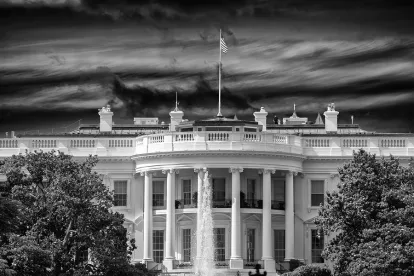The Trump administration and state government agencies have been responding to the escalating coronavirus (COVID-19) public emergency by prioritizing funding opportunities and strategizing ways to increase access to care and minimize economic damage. Despite that, President Trump has been reluctant to declare a national emergency – until now. On Friday, March 13, President Trump declared a national emergency, but what exactly does this move entail?
The Stafford Act Overview
The Stafford Act defines an emergency as:
Any occasion or instance for which, in the determination of the President, federal assistance is needed to supplement State and local efforts and capabilities to save lives and to protect property and public health and safety, or to lessen or avert the threat of a catastrophe in any part of the United States (42 U.S.C. §5122(1)).
The declaration of a national emergency determines the legal and operational resources available to respond to an emergency, such as the outbreak of COVID-19, by increasing federal officials’ powers to respond to and assist states and localities through emergency protective measures undertaken to reduce an immediate threat to life. By invoking the Stafford Act, the Federal Emergency Management Agency (FEMA) will be able to provide disaster relief funding to state and local governments. This includes the ability for a state to request a 75% federal cost-share for expenses that include emergency workers, medical tests, medical supplies, vaccinations and security for medical facilities, among other things. Trump specifically indicated that the move would allow the government to allocate $50 billion in additional funding.
Furthermore, Section 301 of the Stafford Act states: “Any Federal agency charged with the administration of a Federal assistance program may, if so requested by the applicant State or local authorities, modify or waive, for a major disaster, such administrative conditions for assistance as would otherwise prevent the giving of assistance under such programs if the inability to meet such conditions is a result of the major disaster.” This provision will allow states to temporarily waive or modify certain program requirements to ensure sufficient resources and services are available to meet the needs of affected populations.
National Emergency vs. Public Health Emergency
As you may recall, on January 31, 2020, U.S. Department of Health and Human Services (HHS) Secretary Alex Azar declared a public health emergency, pursuant to the Public Health Service Act Section 319. The declaration allowed the HHS and other jurisdictional health departments more flexibility to reassign personnel to respond to COVID-19. A declaration of a national emergency by invoking the Stafford Act will supplement and coordinate local and state, tribal or territorial response efforts and make funds available to meet growing needs.
These funds will be used in tandem with the funds made available through the passage of H.R. 6074, the Coronavirus Preparedness and Response Supplemental Appropriations Act of 2020. As a reminder, H.R. 6074 made funding available across multiple federal agencies – including the HHS, Department of State and the U.S. Agency for International Development (USAID) – and supports new authorities to expand access to treatment and care, from vaccine development to small business impacts.
Next Steps
President Trump’s decision to invoke the Stafford Act and declare the outbreak a national emergency illustrates the seriousness of the situation. Only two emergency declarations through the Stafford Act have targeted disease outbreaks, both made by President Clinton in 2000 for New York and New Jersey to address the threat of the West Nile virus. But while the gravity of this pandemic should not be taken lightly, as World Health Organization Director-General Tedros Adhanom Ghebreyesus stated, “This is not the time to give up.” Rather, “this is a time for pulling out all the stops.”





 />i
/>i

